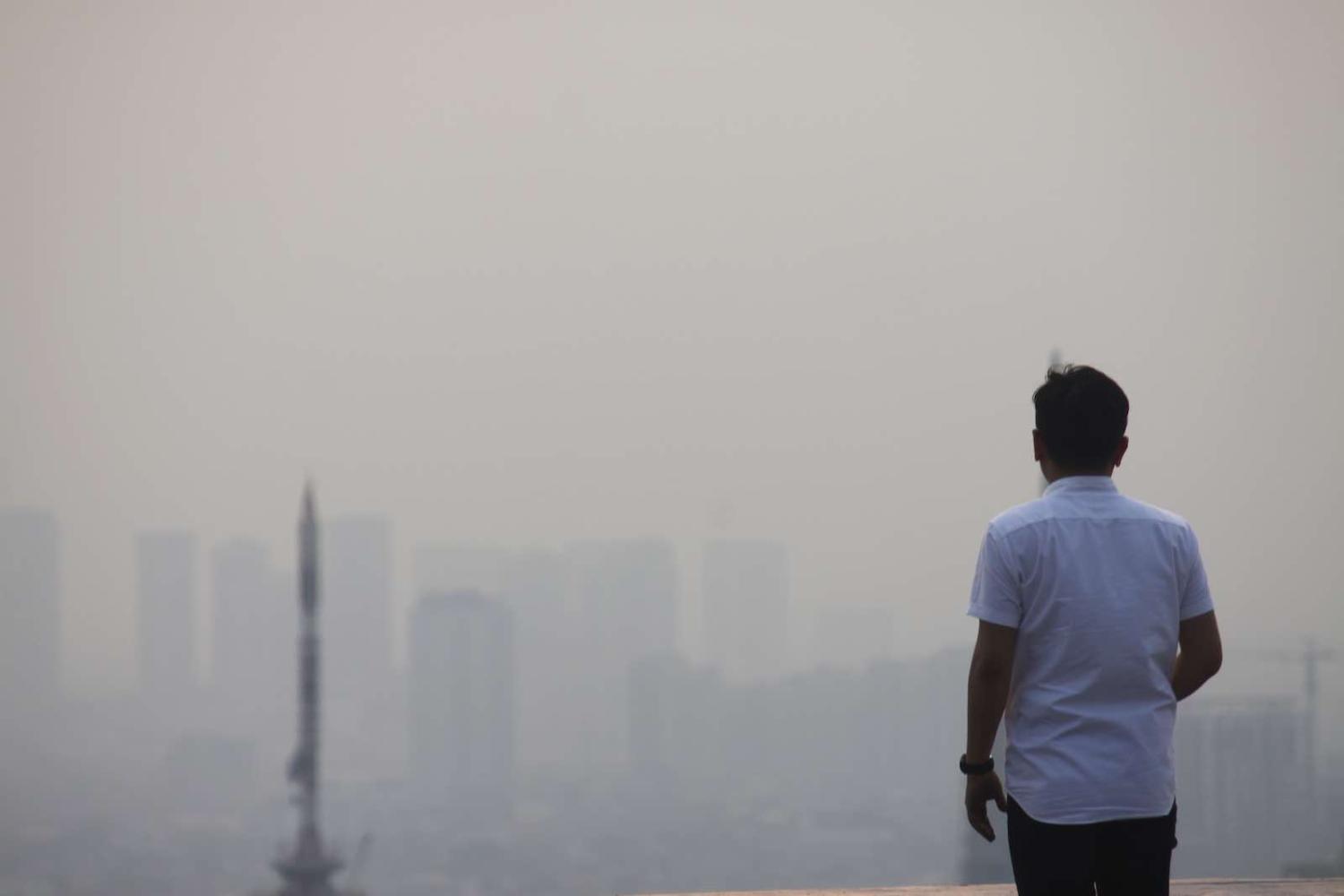The end of the Ramadan fasting period is marked by a week-long holiday in Indonesia. In Jakarta, this means that almost half the population leave the city to travel back to their hometowns and villages to celebrate Idul Fitri with their families.
Usually, this exodus is marked by a noticeable improvement in Jakarta’s air quality, with clear blue skies appearing as the road traffic all but disappears.
This year, however, on 4 June, one day before the Idul Fitri holiday, Jakarta had the worst air quality in the world, according to AirVisual, an air quality monitoring app. With an Air Quality Index (AQI) of 210, Indonesia’s capital easily ranked above other notoriously polluted cities, such as Beijing, Dubai, and New Delhi.
An AQI is measured based on five pollutants: particulate matter (PM), sulphur dioxide, carbon monoxide, nitrogen dioxide, and ozone. Anything above 100 is considered “unhealthy”, while scores over 200 – looking at you, Jakarta – are “very unhealthy”.

Air quality isn’t a new problem for Indonesia, of course. Jakarta’s air has been heavily polluted for years. In 2017, the US Embassy’s air monitoring stations – located on the rooftops of the US Embassy in Central Jakarta and the Ambassador’s residence in South Jakarta – recorded just 26 days where the air quality could be deemed “good”. Most of these were during the wet season, when heavy monsoonal rains clear the skies and tamp down dust. In the first half of 2019, just 10 days of healthy air have been recorded so far.
In fact, research from the University of Chicago shows that Jakarta’s air quality is now so bad that it’s cutting 2.3 years off the average resident’s lifespan. “High air pollution is undermining Indonesians’ health,” researchers from the university’s Energy Policy Centre told Phys.Org.
It’s the finest of pollutant microparticles that are causing illness and early death. When inhaled, tiny pieces of particulate matter known as PM2.5 dramatically increase the risk of early death due to heart disease, stroke, pulmonary disease, and acute lower respiratory disease.
Greenpeace Indonesia estimates that at least 7,390 Jakartans die early every year due to high levels of PM2.5, with almost 2,000 babies born with low birth weights for the same reason. Out of 44 sub-districts in Jakarta, 16 list “upper respiratory infections” as the top cause of illness.
Bondan Andriyanu, a Climate Campaigner at Greenpeace Indonesia, said the fact the air pollution didn’t significantly reduce over the 2019 Idul Fitri holiday was concerning.
“Emissions from coal-fired power plants are spreading all over the Western part of Java,” he said, and showed a map of seven existing plants and five planned plants, all within 100km of Jakarta. The emissions from the planned coal-fired power plants will be equal to adding 10 million cars to Indonesia’s already-jammed roads.

Jakarta’s poor air quality is the result of the perfect storm of pollutants: numerous nearby coal-fired power plants, transport emissions, manufacturing, household emissions, construction, road dust, and open waste burning. All of this takes place on a daily basis in and around the Greater Jakarta region, affecting the lives of over 25 million people.
Bondan is a member of a citizens’ coalition who have banded together to sue the government over poor air quality. Some 57 individuals – including 20 environmentalists and 37 civilians – plan to submit a Citizens’ Lawsuit at the Central Jakarta District Court in July. The suit is addressed to the Indonesian President Joko Widodo, and the ministers of Environment and Forests, Internal Affairs, as well as the governors of Jakarta, West Java, and Banten. The coalition informed the defendants of the plan to sue in December last year. A similar case was recently successful in Paris, in which the court ruled that the French state had failed to take sufficient action to curb air pollution in the city.
Some even questioned the point of exercising outdoors when it would mean they were breathing in such heavily polluted air.
One of the key demands of the Jakartan citizens’ lawsuit are that the central government issue a new regulation that better regulates air pollution. The current regulation dates back to 1999, so does not take into account worsening air quality, new technologies, or the climate crisis. The lawsuit also demands that the Jakarta government improve their monitoring of air quality and ensure that this information is shared with the public at least once a year.
Bondan said the coalition decided on a citizens’ lawsuit because “as citizens, we have the right to a healthy environment, the right to breathe healthy air”.
It seems many Jakartans now with him. Last month, thousands of Twitter users across the city posted snaps of smoggy air using the hashtag #SetorFotoPolusi, meaning “Upload Pollution Photos”. Captions saw residents complaining about how they were forced to wear masks to filter out the pollution whenever they went outside. Some even questioned the point of exercising outdoors when it would mean they were breathing in such heavily polluted air.
The right to clean air is guaranteed by the 1945 Indonesian Constitution, as well as by the 1999 Law on Environmental Protection and Management. While it’s clear that Jakarta’s citizens are becoming increasingly aware of the importance of healthy air, many wonder whether the government has a similar concern.
As Nur Hidayati, Director of WALHI (Indonesian Forum for the Environment), told The Jakarta Post in early June, it is the government’s duty to ensure the air its people breathe is healthy.
"I speak on behalf of not only my organisation but as a resident who has no choice but to breathe polluted air,” she said. “To breathe clean air is our right that the government has to fulfil.”

